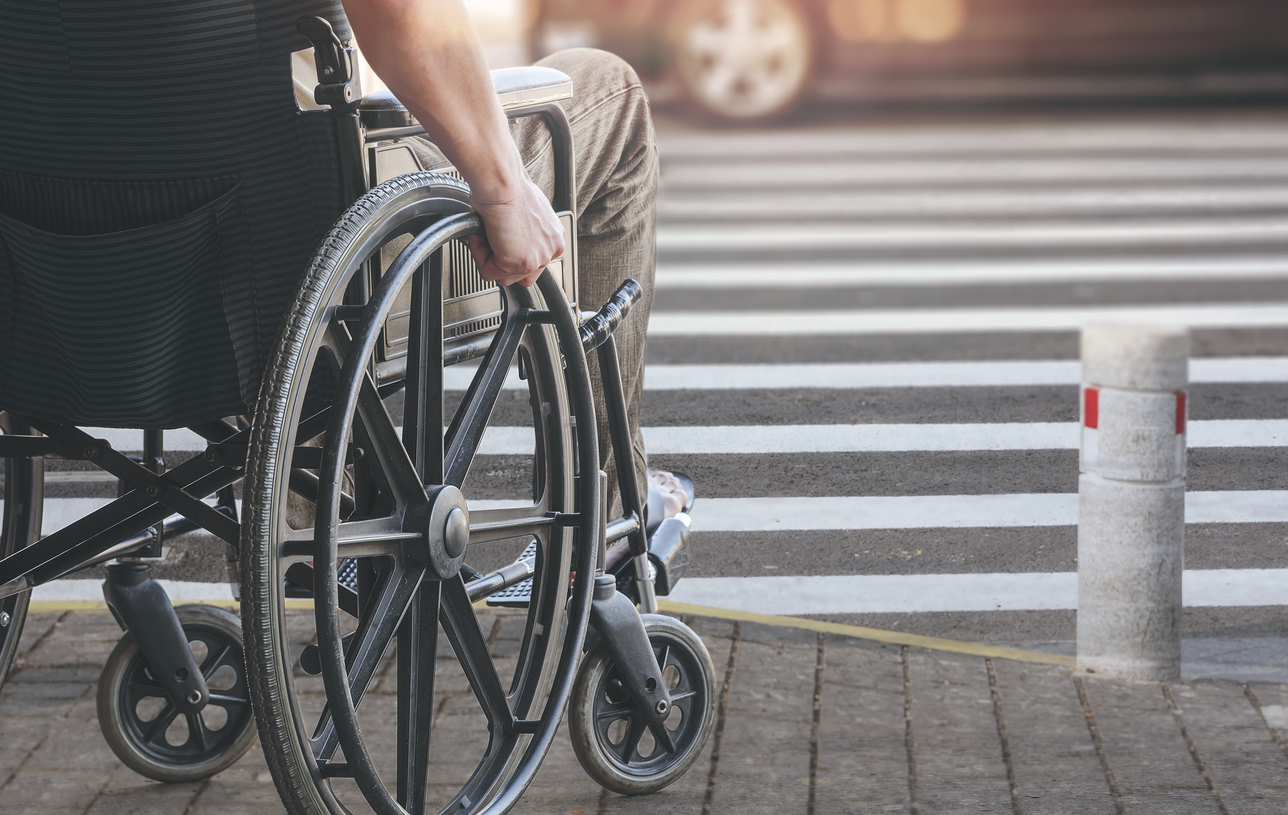What Are the Top 10 Disabilities?
April 25, 2024 | J.L. King, II

More than one out of eight people in Georgia are living with a disability. Adults and children with disabilities and their dependents rely on many state and federal programs for income, medical care, and more.
The primary sources of monthly disability compensation include:
- Workers’ compensation for work-related illness and injury
- Veterans Affairs (VA) benefits for service-related disability
- Social Security Disability Insurance (SSDI) based on work history
- Supplemental Security Income (SSI) based on income and age
About 11 million people nationwide receive SSDI benefits, and 7.5 million receive SSI benefits. In Georgia alone, 295,000 people receive SSDI benefits. The vast majority are disabled workers. Nearly 388,000 people receiving SSDI have applied for workers’ compensation or public benefits programs.
Below are the top ten disabilities based on the 2022 SSDI Annual Statistical Report and 2022 workers’ compensation statistics.
1. Musculoskeletal Disorders
Musculoskeletal disorders are the leading cause of disability. These conditions affect the muscles, bones, and joints. About 30% of SSDI beneficiaries have a musculoskeletal disorder. The number is slightly higher in Georgia: 32% of SSDI beneficiaries or 95,000 people.
Common types of musculoskeletal disorders are:
- Chronic back pain
- Complex or non-healing fractures
- Amputation or limb loss
- Degenerative disc disease
- Severe burns
- Arthritis
Arthritis alone is believed to be the single greatest cause of disability. Nearly 66% of workers’ compensation claims involve musculoskeletal conditions like back pain. They are the most common injury resulting from a workplace accident.
2. Depression and Related Disorders
Nationwide, 12% of people receiving SSDI benefits qualify for major depression, bipolar disorder, or a related condition. The number is much lower in Georgia: 8.7% (25,700) of SSDI recipients. Depressive disorders qualify as a disability when they significantly impair the ability to work long-term.
3. Sensory and Nervous System Disorders
About 10% of SSDI beneficiaries nationwide and in Georgia qualify for a disorder of the nervous system or sensory disorder of the skin, eyes, nose, or ears.
Common examples include:
- Vision loss or blindness
- Multiple sclerosis (MS)
- Brain injuries
- Spinal cord injuries
- Neuralgia or nerve pain
Nervous system disorders can be caused by degenerative or autoimmune disorders. They may also be caused by injury or trauma, interrupted blood flow, or infection.
4. Intellectual Disorders
Down syndrome, Prader-Willi syndrome, and other intellectual disabilities account for 9% of SSDI beneficiaries. In Georgia, 24,500 (8.3%) of SSDI recipients qualify for an intellectual disability. These conditions cause significantly reduced intellectual functioning and difficulty with adaptive functioning and learning.
5. Circulatory or Cardiovascular Disorders
Circulatory disease of the heart, arteries, or veins can be disabling. The two broad forms of cardiovascular disease are heart disease and stroke.
Heart disease can refer to:
- Heart attack
- Heart failure
- Atherosclerosis
- Arrhythmia or dysrhythmia
- Coronary artery disease (CAD)
- Peripheral artery disease (PAD)
Heart disease is also the leading cause of death in the United States.
Nationwide, 6.7% of SSDI beneficiaries have severe cardiovascular disease. In Georgia, the number is much higher: 8.8% (25,800) of SSDI recipients.
6. Schizophrenia and Related Disorders
Schizophrenia and other psychotic disorders are responsible for 4.7% of SSDI beneficiaries and 4% (12,000) beneficiaries in Georgia. These psychotic disorders result in altered thinking and perception, including losing touch with reality, extreme confusion, and delusions.
Some forms of psychosis are associated with medical conditions or substance abuse. It can also be triggered by other conditions like psychotic depression or postpartum psychosis.
7. Other Mental Disorders
About 4.5% of SSDI beneficiaries nationwide have another disabling mental disorder aside from the types listed above.
Common examples include:
- Eating disorders such as bulimia and anorexia
- Anxiety disorders like generalized anxiety disorder (GAD) or social anxiety disorder (SAD)
- Obsessive-compulsive disorder (OCD)
- Post-traumatic stress disorder (PTSD)
In Georgia, other mental disorders account for 9,700 (3.3%) of SSDI beneficiaries.
8. Injuries
Nationwide, 3.4% of SSDI beneficiaries have suffered a disabling or catastrophic injury. Almost 11,000 people (3.7%) in Georgia receive SSDI benefits due to an injury.
An acute injury is the primary cause of 6% of workers’ compensation claims overall. After musculoskeletal disorders, injuries are the second most common reason for approved workers’ compensation claims.
These injuries are often caused by car accidents, falls, sports, and even assault.
9. Tumors or Neoplasms
Benign brain tumors and malignant cancers like ovarian cancer, lung cancer, and mesothelioma qualify for disability benefits. 9,600 people (3.3%) in Georgia receive SSDI benefits for a tumor or cancer. Nationwide, 3% of SSDI beneficiaries qualify for cancer.
10. Dementia or Major Neurocognitive Disorder
Major neurocognitive disorder, or dementia, causes memory impairment, reduced mental function, and an inability to perform daily tasks.
There are many types of dementia, including:
- Alzheimer’s disease (70% of cases)
- Vascular dementia (15%)
- Parkinson’s disease (10%)
- Lewy body dementia (5%)
Dementia accounts for 3% of SSDI beneficiaries. In Georgia, 2.8% (8,300) of SSDI recipients have dementia.
Contact Our Personal Injury Law Firm For Help Today
While many disabilities are unavoidable, millions of people in the U.S. are living with a disability caused by an accident or avoidable workplace illness. Benefits provided by workers’ compensation and Social Security disability are rarely enough to compensate victims for what they have lost or support their quality of life.
If your disability was the result of an accident, you may be entitled to additional compensation through other avenues if someone else was at fault. A Tifton personal injury lawyer can discuss your legal options and how they can help with a disability claim.
For more information, please contact The King Firm Car Accident and Personal Injury Lawyers at your nearest location to schedule a free case evaluation today.
Tifton Office
1603 US Hwy 41, Tifton, GA 31794
(229) 386-1376
Griffin Office
3317 Fayetteville Rd, Griffin, GA 30223
(404) 567-4546
Macon Office
886 Mulberry St, Macon, GA 31201
(478) 292-7272
